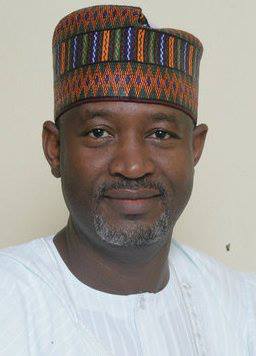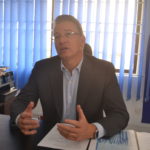The federal government has made it clear that it would concession the four major airports in the country so that the private sector can invest in infrastructure of airport facilities.
A government with lean resources in a capitalist society obviously would think of other ways to fund and provide social amenities to the citizenry. For Nigeria, it is long overdue. So many Nigerians must have heaved a sigh of relief when the Minister of State for Aviation, Senator Hadi Sirika announced the plan by government to concession four major airports in the country.
The concession, the Minister noted must be sequential, starting with the airports in Lagos, Abuja, Port Harcourt and Kano and eventually giving out the rest to investors and possibly the state government where the airports are located.
This sounds good, but it could be recalled that airport concession has been a regular mantra among government top officials in the past 10 years, from succeeding Ministers of Aviation to their permanent secretaries, but the good intention has never translated to reality, besides the bold move taken by the Chief Olusegun Obsanjo administration to concession the Lagos airport domestic terminal, known as MMA2.
But even at that, the concession is riddled with controversy over the tenure and the facilities that were included in the agreement, which government through the Federal Airports Authority of Nigeria (FAAN) signed with Bi-Courtney Aviation Services Limited (BASL).
Inhibiting Factors
It is the opinion of many in the aviation industry that government should concession airport facilities but this must follow a process and such process include that government should honour agreements and should not rush to concession else it would embroil itself in another controversy which at the end would rob off on government’s image and goodwill.
At a recent conference organised by the International Air Transport Association (IATA) in Abuja, the former Director General of the Nigerian Civil Aviation Authority (NCAA), Dr Harold Demuren said before government should concession airports, it must resolve the controversy over the concession of the domestic terminal of the Lagos airport with Bi-Courtney Aviation Services Limited (BASL). Demuren was of the view that it is when this is done that government would have the credibility to attract investors to further develop and manage airport facilities.
Demuren at the conference observed: “There is need for PPP (Public, Private Partnership) in aviation in Nigeria as it is obvious that government cannot do it all. But with the experience of the Murtala Muhammed Airport Two (MMA2) Lagos, government has not shown good faith. Such crisis in the MMA2 PPP must be resolved, or else investors would not invest their resources in the sector.”
One could recall the often-quoted statement of the first Managing Director of BASL, Alex Van-Elk that an agreement is not worth the paper it is written on if it is not honoured. But when it is said that way, everyone points accusing finger at the government for signing an agreement, which it was not ready to honour. But industry insiders observed that the agreement was done in a hurry; that government seemed to have been hoodwinked. While many have divergent views about the agreement, many always say that for government to follow a part of honour, it should honour an agreement it entered into.
However, the private sector must be encouraged to invest in airport infrastructure development because government cannot efficiently build and manage them effectively, especially now its resources are lean and there are other critical areas it is obliged to invest in to improve the lots of the people.
The Managing Director of Arik Air, Chris Ndulue at the aforementioned IATA conference said that charges at the airports do not reflect the service rendered and noted that the private sector needs to come and provide the facilities that government is providing today.
“Government has the plan. The major challenge is managing existing airports efficiently as the private sector can do. There are a lot of changes going on in the aviation industry. I support the concession of the airports. You gain efficiency and government makes more money. The problems with the airports are so many. By outsourcing management of the airports government will make more money. You can make the airports we have workable. We should have at least three or four functional airports. The problems are prevalent in Africa,’ Ndulue said.
Due Process
Not to be caught at crossroads again, government must put things in place before embarking on another concession. Industry consultant and CEO of Belujane Konsult, Chris Aligbe has always canvassed for the concession of airport facilities but recommend that before government would embark on it, it should carry out administrative and legal framework to define the concession programme.
“One will also ask, where are the frameworks for concessioning? There must be legal frameworks; there must be legislative framework. Look at what is happening with Petroleum Industry Bill (PIB), for a long time it is being debated. Look at the energy sector, the unbundling that happened in NEPA, these are happening in legislative frameworks, maybe the government may have taken a different decision but when this new government came and they saw that it went through the National Assembly, that a framework was put on ground, it is not something you can easily upturn. That is what investors look for when they come into your country.”
The fate of FAAN
Some industry observers are asking, what will happen to the workers of the Federal Airports Authority of Nigeria (FAAN) when the major airports are concessioned? They noted that the problem of the airports is not entirely the problem of FAAN but that of government, adding that if government had allowed FAAN the autonomy to operate the airports they could have turned out better today. The former Managing Director of the agency, George Uriesi said if government had given FAAN the autonomy without interferences, as was done with the Airport Company of South Africa; the airports would have been better managed.
An industry stakeholder, Alhaji Abdulyakeem Umar, has criticised government’s plan to concession the most profitable airports and queried what will be the fate of FAAN and its workers.
“It is totally wrong to concession the viable airports in Abuja, Lagos, Port Harcourt and Kano. These are the ones that have been selected. What happens to the 17 other non-viable ones that depend largely on these four airports? Anybody taking the four airports should go with the liabilities of the 17 non viable ones,” he said.
Bi-Courtney Aviation
Aligbe recently acknowledged that Bi-Courtney Aviation Services Limited has shown a good example about how airport terminal could be effectively run with MMA2. The terminal has epitomised what the private sector can do if given the chance to participate in airport infrastructure development. There are talks that if the company were given more airports to manage it would not have managed them as efficiently but this is debunked by the fact that despite the harsh operational environment, the company was able to put in place a semblance of what a traveller could get in other parts of the world.
“Once the system is put in place and it is working you apply it on other airports. So I am of the opinion that if government wants to concession it should give BASL the first chance because at the time no one was interested in investing in airport facility development, BASL risked government’s inconsistent policies to build the edifice that is MMA2 today,” an industry observer told THISDAY.
However, many Nigerians who talk about concession always insist that a foreign concessionaire with world-class standard pedigree should be brought in to take over the airports. But BASL has built and managed MMA2 successfully. This echoes the reported Jewish allegation that Africans have a predilection to spend their money overseas and do not believe in themselves.
Industry consultant and the CEO of Aglo Limited, aviation support service company, Tayo Ojuri said the any company that would have the concession of the airports should be Nigerian registered but should be a global brand.
“Bi-Courtney can get the concession but it should have a world brand like Ferrovial as its technical partner. With that if it bids for the airports it would get it,” Ojuri said.
But there is always the fear of high charges that if not checked companies that take over the management of the airports could charge airlines and others in order to quickly recoup their investment.
Aligbe however noted that to check such possible excesses, government must set up a committee that could hold the investors in check.
“Immediately you concession you must put in place a standing user’s charges committee, that before any new charge is brought in all the users of the airport will come together and the owner of the airport will justify what he is bringing in and why he is bringing it in and then all of them will agree, once they agree, they set a date.
“So we have to put in place systems that will check charges by monopolies, but we need to concession the airports. If we keep managing our airports the way we are managing them today none of them will ever grow to become a world standard airport and government cannot continue to fund the airports,” Aligbe said.
Stakeholders are of the view that before the airports are concessioned, government must have to put certain structures in place and back them with the right legislation.
CULLED FROM THISDAY






